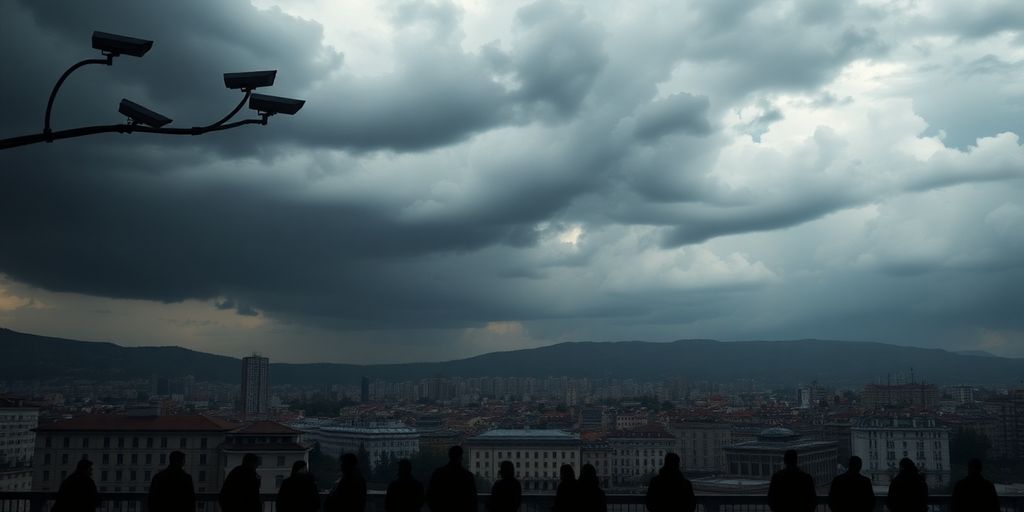The Western Balkans is witnessing a troubling rise in surveillance and censorship, as governments increasingly employ advanced technologies to monitor and suppress dissent. A recent report by the Balkan Investigative Reporting Network (BIRN) highlights alarming trends in countries like Albania, Kosovo, Montenegro, and Serbia, where civil liberties and press freedom are under significant threat.
Key Takeaways
- Biometric surveillance and facial recognition technologies are rapidly expanding.
- Governments are increasingly using spyware and digital censorship against journalists and activists.
- Legal frameworks often fail to effectively protect digital rights.
- There is a pressing need for independent monitoring of surveillance practices.
Growing Surveillance Technologies
The BIRN report reveals that biometric surveillance and facial recognition technologies are becoming more prevalent across the Western Balkans. Countries such as Albania and Serbia are at the forefront of these developments, raising serious privacy and ethical concerns.
- Albania’s "Smart City" Initiative: This project plans to install thousands of security cameras, including Automatic Number Plate Recognition (ANPR) systems, across major cities. While aimed at improving safety, it raises significant concerns about data protection and potential misuse of sensitive information.
- Serbia’s Surveillance Network: The country has deployed numerous cameras equipped with facial recognition technology in public spaces, despite lacking a legal framework to regulate their use. This extensive surveillance network has been linked to the targeting of political opposition and journalists.
- Montenegro’s Secret Acquisitions: The government has secretly acquired biometric facial recognition software for use in public areas, raising transparency issues and concerns about the lack of oversight.
Targeting of Journalists and Activists
The report highlights the increasing use of spyware, particularly the notorious Pegasus tool, against civil society members, journalists, and activists in Serbia. This has led to serious violations of privacy and press freedom, with the government largely unresponsive to calls for accountability.
- Legal Harassment: Journalists and activists across the region face legal challenges and harassment. In Albania, security laws are used to restrict online content, while in Bosnia and Herzegovina, defamation laws target journalists.
- Self-Censorship: The pervasive fear of surveillance has led to widespread self-censorship among journalists and activists, stifling free expression and limiting public discourse.
Legal Frameworks and Gaps
While the legal frameworks in the Western Balkans are often aligned with EU standards, significant gaps remain in practice, undermining the protection of digital rights.
- Albania and Kosovo: Both countries have laws protecting digital rights, but enforcement is weak, allowing for government overreach.
- Bosnia and Herzegovina: Media freedom has regressed, particularly in the Republika Srpska entity.
- Montenegro: The country struggles with outdated data protection laws, hindering effective oversight of surveillance practices.
- North Macedonia: There have been delays in enforcing digital rights, further complicating the landscape.
- Serbia: Politicized institutions and proposed legal amendments threaten press freedom and exacerbate the challenges faced by independent media.
The Need for Independent Monitoring
As surveillance and censorship practices grow more sophisticated, the report emphasizes the critical need for independent actors to investigate and document violations. Megi Reci, BIRN’s Digital Rights Programme Research Lead, stated, "Exposing how power is wielded behind closed doors helps protect not just individual rights, but the very spaces where dissent, debate, and accountability can exist."
The findings of the BIRN report serve as a stark reminder of the ongoing challenges to democracy and freedom in the Western Balkans, urging stakeholders to take action to protect civil liberties and promote transparency in governance.






